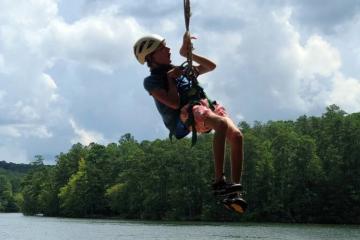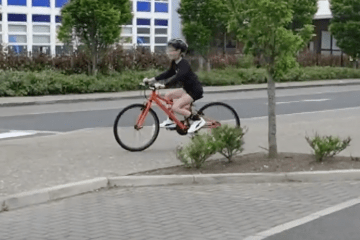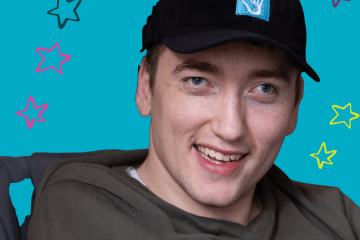New Horizons Virtual Town Hall 7 - Can Exercise and Physical Activity Help Reduce Spasticity and Improve Function?
Wendy Pierce, MD
Pediatric Physiatrist, Children's Hospital Colorado
Dr. Wendy Pierce is board certified in Physical Medicine and Rehabilitation with a pediatric subspecialty. Her focus is on improving the function of children with chronic illnesses including cerebral palsy. She earned her medical degree from Northwestern University and completed her residency at Baylor College of Medicine. She started at Children's Hospital Colorado, where she completed a fellowship in pediatric rehabilitation medicine. Dr. Pierce began her career at Rady Children's Hospital San Diego then in April 2014 started at Children’s Rehabilitation Clinic in Colorado Springs. She is faculty at the University of Colorado.
She has served on several committees of the American Academy for Cerebral Palsy and Developmental Medicine. She is a member of the data review team for the clinical gait lab at Children’s Hospital and serves on the board of the Commission of Motion Lab Accreditation.
She and her husband Aaron have volunteered for the adaptive ski program at Children’s Hospital Colorado, which is how they met. She serves as bus staff and medical consultant. Her husband is a sit ski instructor for the program. Her husband is a mechanical engineer by training and now works for Numotion as an Assistive Technology Professional. They have 2 happy girls – Penelope age 5 and Abigail age 3 and 1 cat and 6 hens.
Byron Lai, PhD
Assistant Professor, Department of Pediatrics, University of Alabama at Birmingham, Children's Hospital Alabama, Lakeshore Foundation
Dr. Lai is an Assistant Professor in the Department of Pediatrics at the University of Alabama at Birmingham (UAB), within the Division of Pediatric Rehabilitation Medicine. He has been conducting exercise research for people with disabilities for 8 years under the UAB / Lakeshore Foundation Research Collaborative. He completed his doctoral training and a postdoctoral fellowship at UAB, within the Department of Physical Therapy in the School of Health Professions. He further completed a postdoctoral fellowship in the Department of Pediatrics, School of Medicine. He has over a decade of experience in clinical exercise training among various groups of people with physical and cognitive disabilities.
Dr. Lai served on the board of the North American Federation for Adapted Physical Activity for several years and is a member of the American Academy of Physical Medicine and Rehabilitation, the American Academy for Cerebral Palsy and Developmental Medicine, and the American College of Sports Medicine.
Dr. Lai’s research interests focus on incorporating technology to provide enjoyable and accessible, evidence-based exercise programs for people with disabilities. Particular areas of interest include active video gaming, wearable monitoring devices, and therapeutic exercise with music.
Christopher Modlesky, PhD
University of Georgia Athletic Association Professor of Kinesiology
Christopher Modlesky, PhD, is a University of Georgia (UGA) Athletic Association Professor of Kinesiology and is Co-director of UGA’s Pediatric Exercise and Motor Development Clinic. He is a Fellow of the American Academy of Cerebral Palsy and Developmental Medicine and is the current chair of their Research Committee.
Dr. Modlesky has been studying disability, with a special emphasis on children with cerebral palsy, for nearly 25 years. One of his primary areas of research is in the assessment of the musculoskeletal system using different imaging modalities, such as magnetic resonance imaging and dual-energy X-ray absorptiometry. He has developed unique collection and post-processing techniques that have allowed his lab to assess detailed structural aspects of muscle and bone in children with cerebral palsy. His research also focuses on determining the effect of different treatments on the musculoskeletal system and physical activity of children with cerebral palsy. Dr. Modlesky plays an active role in promoting CP-focused research and developing the next generation of researchers. To support his work, he has received external funding through grants from the National Institutes of Health, the United Cerebral Palsy Research and Educational Foundation, and the National Osteoporosis Foundation.
Starting young and developing habits of incorporating exercise into daily life is essential for strength building. Research has shown exercise improves the efficiency of how a muscles and nerves contract, especially in children; additionally, developing a daily exercise habit in children makes exercise easier to maintain later in life.







